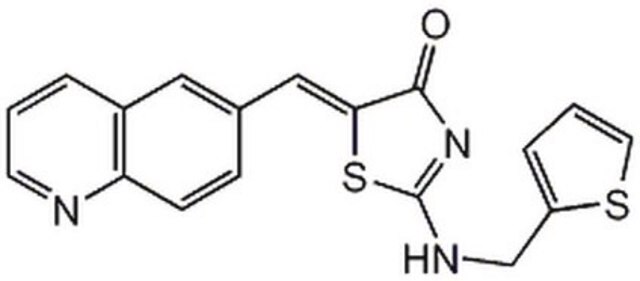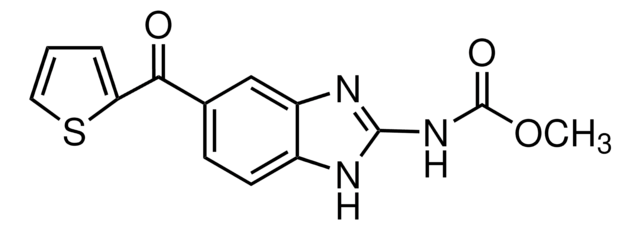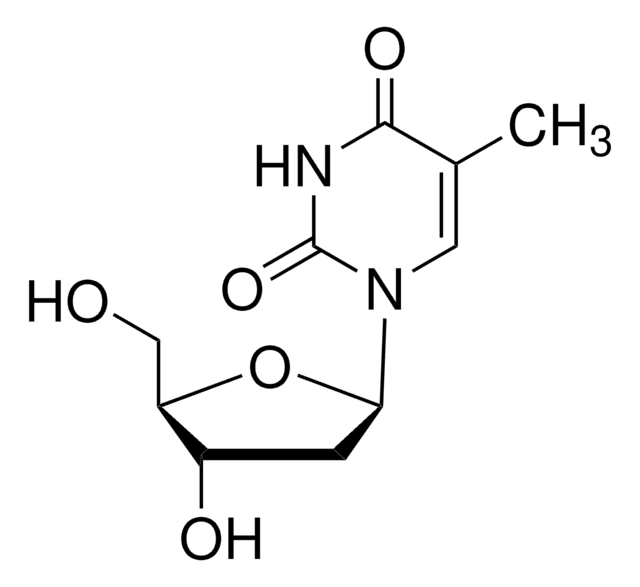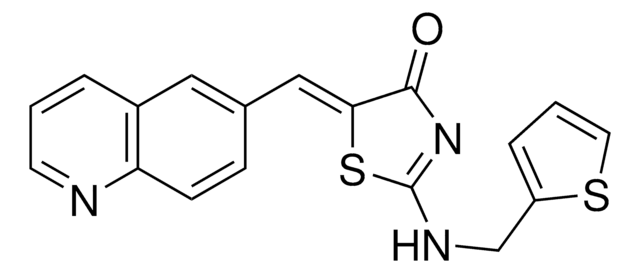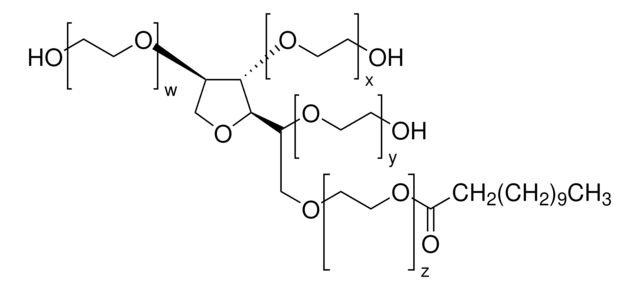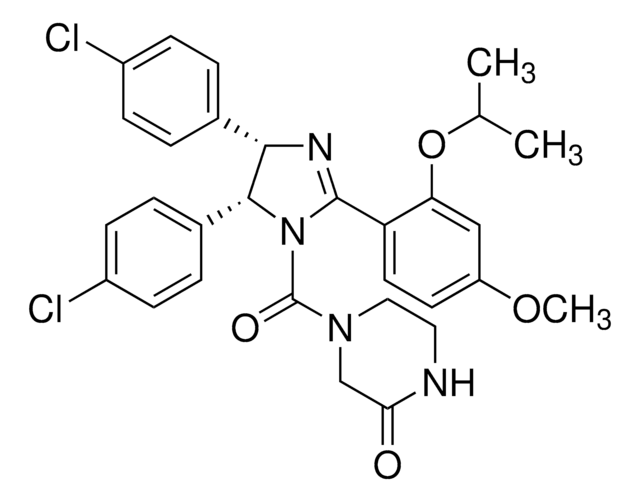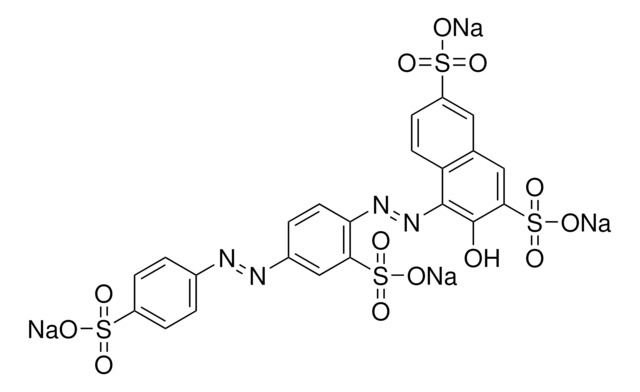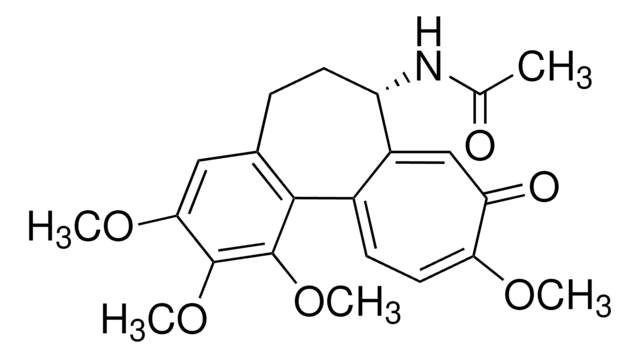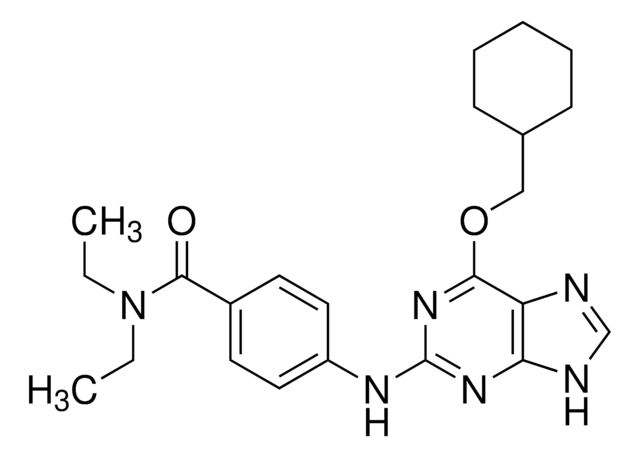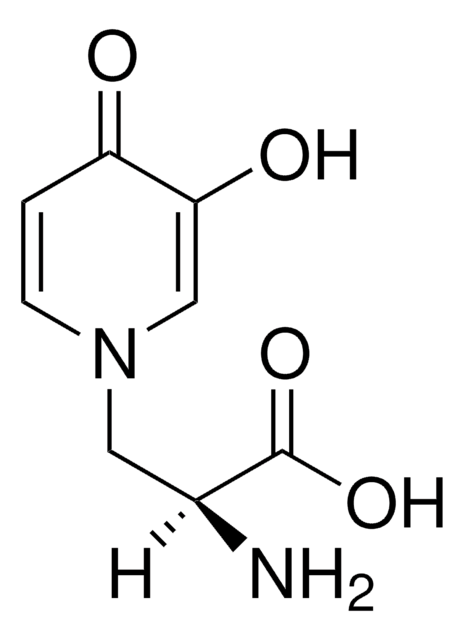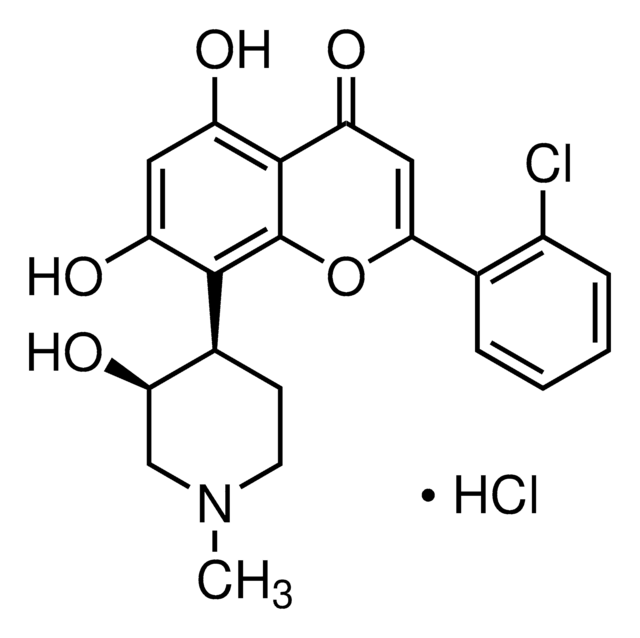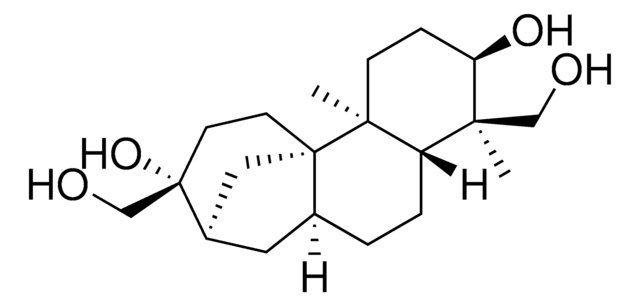SML0569
RO-3306
≥98% (HPLC)
Synonym(s):
(5Z)-5-Quinolin-6-ylmethylene-2-[(thiophen-2-ylmethyl)-amino]-thiazol-4-one, 5-(6-Quinolinylmethylene)-2-[(2-thienylmethyl)amino]-4(5H)-thiazolone
About This Item
Recommended Products
Quality Level
assay
≥98% (HPLC)
form
powder
color
off-white to brown
solubility
DMSO: 5 mg/mL, clear
storage temp.
2-8°C
SMILES string
O=C1N=C(NCC2=CC=CS2)S/C1=C\C3=CC4=C(C=C3)N=CC=C4
InChI
1S/C18H13N3OS2/c22-17-16(24-18(21-17)20-11-14-4-2-8-23-14)10-12-5-6-15-13(9-12)3-1-7-19-15/h1-10H,11H2,(H,20,21,22)/b16-10-
InChI key
XOLMRFUGOINFDQ-YBEGLDIGSA-N
Application
- To study the significance of CA4-mediated cytotoxicity in mitotic arrest
- In cell cycle synchronization to conduct a study on proteomics
- As a CDK1 inhibitor, to prevent early mitotic entry
Biochem/physiol Actions
Features and Benefits
Storage Class
11 - Combustible Solids
wgk_germany
WGK 3
flash_point_f
Not applicable
flash_point_c
Not applicable
Certificates of Analysis (COA)
Search for Certificates of Analysis (COA) by entering the products Lot/Batch Number. Lot and Batch Numbers can be found on a product’s label following the words ‘Lot’ or ‘Batch’.
Already Own This Product?
Find documentation for the products that you have recently purchased in the Document Library.
Customers Also Viewed
Articles
Cyclin dependent kinases (CDKs) are typical serine/threonine kinases that display the 11 subdomains shared by all kinases. The complete sequence of the Homo sapiens genome shows that among the ~30,000 predicted genes, there are 13 CDKs and 25 cyclins. Eleven CDKS and their associated cyclins have been characterized in man.
Our team of scientists has experience in all areas of research including Life Science, Material Science, Chemical Synthesis, Chromatography, Analytical and many others.
Contact Technical Service